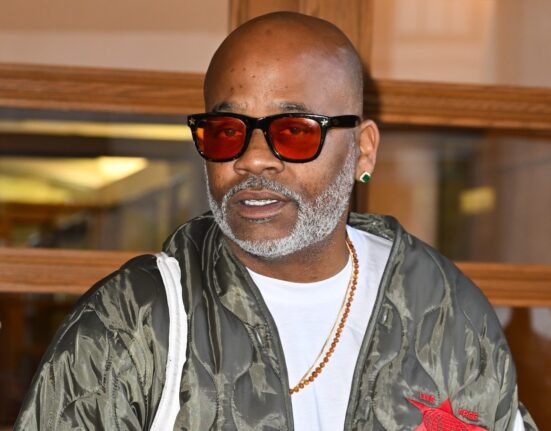“The large number and vast scope of the patents asserted in the district court litigation… weighs against discretionary denial, as the Board is better suited to review a large number of patents involving diverse subject matter.” – Director Discretionary Denial Decision in IPR2025-00341
 Following the release of 11 Director Review decisions on discretionary denial on Thursday, June 12, Acting Director Coke Morgan Stewart issued two additional decisions late Friday, both of which denied the requests for discretionary denial. The total tally of decisions under this new process is now at 18, and factors such as timing of parallel proceedings, early challenges to patents and “settled expectations” of the patent owner are shaping up to be key considerations.
Following the release of 11 Director Review decisions on discretionary denial on Thursday, June 12, Acting Director Coke Morgan Stewart issued two additional decisions late Friday, both of which denied the requests for discretionary denial. The total tally of decisions under this new process is now at 18, and factors such as timing of parallel proceedings, early challenges to patents and “settled expectations” of the patent owner are shaping up to be key considerations.
On June 12, Stewart issued 11 Director discretionary decisions under the agency’s interim process for managing workloads at the Patent Trial and Appeal Board (PTAB), declining to issue discretionary denials under 35 U.S.C. § 325(d) in seven inter partes review (IPR) proceedings but granting the request to deny institution and terminating four other IPR proceedings.
The two latest decisions, issued June 13, both involved Tesla, Inc. In one, patent owner Intellectual Ventures argued factors such as the scheduled trial date, which precedes the projected final written decision due date, insufficient evidence the district court is likely to stay its proceeding even if the Board were to institute trial, and the fact that there has been meaningful investment in the district court proceeding by the parties, all favored discretionary denial of institution. However, Tesla argued that it filed a broad stipulation and that the merits are strong given that the PTAB “previously determined there was a reasonable likelihood that similar claims of an ancestor patent were unpatentable in three separate proceedings with respect to some of the challenged patents in these proceedings.”
Stewart ultimately agreed with Tesla that the “Petitioner’s arguments regarding the complex and diverse litigation proceeding tip the balance against discretionary denial.” With 11 patents spanning nine different families that involve a diverse range of subject matter, Stewart said “the large number and vast scope of the patents asserted in the district court litigation… weighs against discretionary denial, as the Board is better suited to review a large number of patents involving diverse subject matter.”
The second decision issued Friday contained nearly identical language. Although the patent owner in that case is listed as the United States of America, represented by the Secretary of the Navy, Intellectual Ventures is the exclusive licensee of the patent at issue.
The Tally So Far
These latest decisions bring the total number of decisions under the interim procedure to seven grants of discretionary denial and 11 denials. Here is the list so far:
Petitions for Director Review of Discretionary Denial GRANTED:
- In Arm Ltd. and Mediattek, Inc. v. Daedalus Prime LLC, the Acting Director determined the time to trial would be between March and May 2026 and the Final Written Decision (FWD) in the IPR was projected to be June 2026. “As such, it is unlikely that a final written decision in this proceeding will issue before district court trial occurs,” said the decision.
- In Ericsson and Verizon Wireless v. Procomm International, the request to discretionarily deny a petition for IPR was granted because “a trial date in the related district court litigation will precede the projected final written decision issuance date in this proceeding by nine months.” While the petitioner said it waited nearly a year to file the petition for IPR due to the patent owner’s proposed amended infringement contentions, Stewart said the petitioner did “not explain sufficiently the nature of those proposed amendments and how they impacted the timing of the Petition.”
- In iRhythm v. Welch Allyn, issued June 6, Stewart denied institution of five inter partes reviews (IPR) in which several factors weighed against granting denial but the failure of the petitioner to challenge the patent sooner and the “settled expectations” of the patent owner superseded those factors.
- In Tessell v. Nutianix, discretionary denial was granted due to “unfair dealings” where former employees who left to start their own company were denied the ability to challenge the patent that they were awarded. “It is not an appropriate use of Office resources where the inventors applied for and were issued a patent, but, as is the case here, now advocate for its unpatentability,” the decision said.
- In Advanced Micro Devices, Inc. v. Concurrent Ventures, LLC, discretionary denial was granted due to time to trial considerations and the considerable investment the parties had made in the district court proceedings.
- In Shenzen Tuozhu Technology Co. Ltd.v. Stratasys, Inc., discretionary denial was granted because timing considerations would result in parallel proceedings and the petitioner’s Sotera stipulation would reduce but not eliminate the inefficiencies of maintaining two proceedings.
- In Neogenomics Laboratories v. Sotera, discretionary denial was granted due to timing considerations and the substantial investments in the district court trial.
Petitions for Director Review of Discretionary Denial DENIED:
- In Twitch Interactive, Inc. v. Razdog Holdings LLC, Stewart explained that the request was based primarily on a parallel district court proceeding in the Northern District of California that did not have a scheduled trial date. The Petitioner cited statistics showing that the earliest trial date was likely to be February 2027, “which would be significantly after the projected final written decision date” of July 30, 2026. Petitioner also presented persuasive evidence that a stay was likely to be granted. The request for discretionary denial was therefore ultimately denied.
- In Amazon.com v. NLGiken, Inc., Stewart also found that denial was inappropriate based on timing considerations. The scheduled trial date in the district court case is June 22, 2026, “but the time-to-trial statistics suggest trial would not begin until December 2026.” Since the projected Final Written Decision date is June 30, 2026, discretionary denial was denied.
- In Globus Medical v. Spinelogik, the patent expired four years earlier, which significantly undercut the patent owner’s “settled expectations” argument.
- In Tesla v. Intellectual Ventures, Tesla argued that it filed a broad stipulation and that the merits are strong given that the PTAB “previously determined there was a reasonable likelihood that similar claims of an ancestor patent were unpatentable in three separate proceedings with respect to some of the challenged patents in these proceedings.” Stewart ultimately agreed with Tesla that “the complex and diverse litigation proceeding tip the balance against discretionary denial.”
- In Tesla v. the United States of America, represented by the Secretary of the Navy, Stewart denied the request for discretionary denial on identical grounds to Tesla v. Intellectual Ventures.
- In Tesla v. Charge Fusion Technologies, the request for discretionary denial was denied because the petitioner presented “persuasive evidence that the Office erred in a manner material to the patentability of the challenged claims by overlooking” the teachings of a prior art reference.
- In Resmed Corp. v Cleveland Medical Devices, discretionary denial was no granted in part due to the fact that the patents being challenged were recently issued. “Early challenges favor robust, predictable patent rights and weigh against discretionary denial,” wrote Stewart.
- In Merck Sharp & Dohme LLC v. Halozyme LLC discretionary denial of a post grant review (PGR) was denied due to timing considerations and the fact that the patent was being challenged early in its life.
- In Microsoft Corp. v. Partec Cluster Competence Center, discretionary denial was not granted in spite of the timing considerations that weighed in favor of discretionary denial because of a material error by the examiner. “Ordinarily, a scheduled district court trial date that precedes the date projected for a Board final written decision weighs in favor of exercising discretion to deny the Petition. Here, however, the Petitioner appears to show a material error by the Office and it is an appropriate use of Office resources to review the potential error.”
- In Savant Technologies LLC v. Feit Electric Company, discretionary denial was denied because the petitioners presented a compelling case that the patent owner’s subsequent assertion of infringement on separate claims in district court after Savant had challenged a different set of claims of the patent necessitated the filing of the present IPR. “Petitioners acted diligently in filing this Petition less than three months after Patent Owner asserted claims 11 and 12 in district court,” said the decision.
- In Imperative Care v. Inari Medical, Stewart said that because there is no trial date scheduled in the district court, the petitioner presented compelling evidence that the district court is likely to grant a stay if the proceeding is instituted, and because the challenged patent issued recently, discretionary denial is not appropriate.
Image Source: Deposit Photos
Image ID: 752860572
Image author:Diloka107








